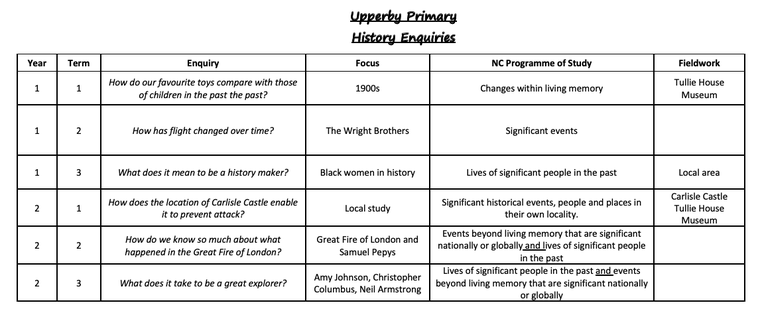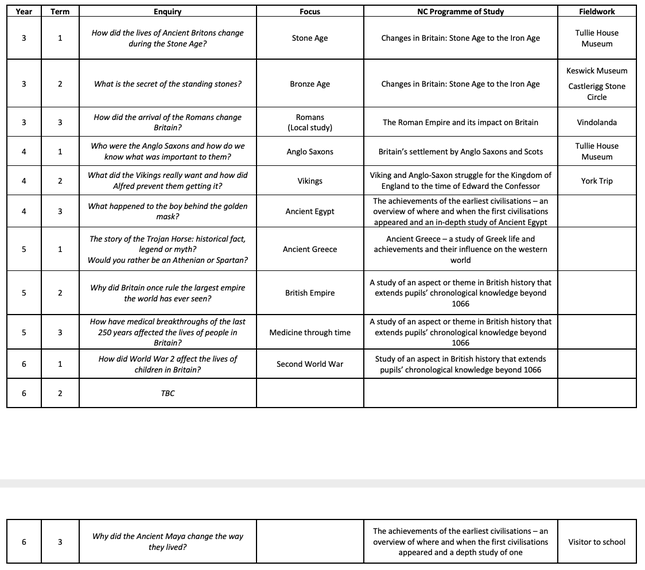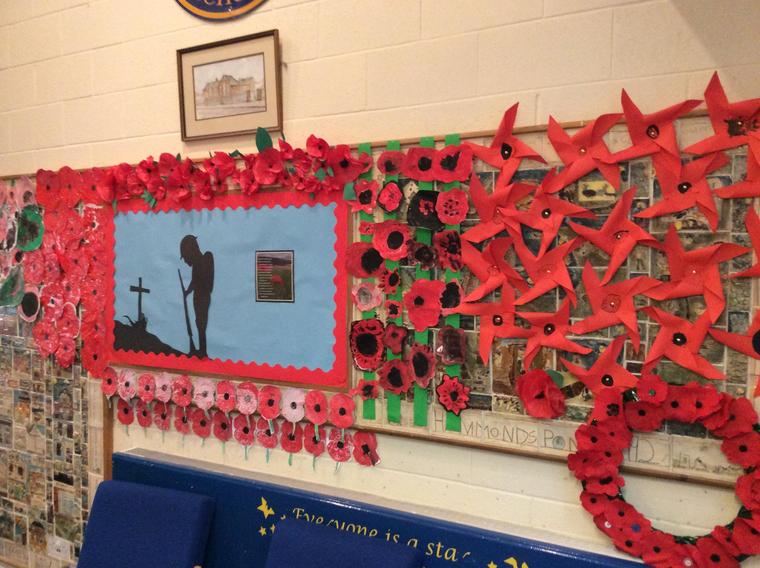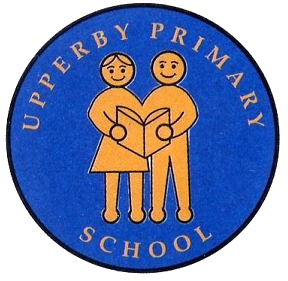History
Our History subject leader is Mrs Weir

Intent
We aim to bring History to life at Upperby Primary School by immersing our pupils in experiences both in school and educational visits. We equip our pupils to have a real understanding of when events happened and aim to ignite their curiosity about the past. Alongside historical knowledge and understanding, there is an emphasis on developing enquiry skills to deepen understanding.
The teaching of History at Upperby Primary School is intended to equip our pupils to ask pertinent questions about the past, analyse evidence, think critically, appreciate different perspectives and develop informed judgements. This will enable pupils to have transferable skills across other subjects. We believe our pupils should be taught to understand how Britain has influenced and been influenced by the wider world. In addition, our curriculum provides opportunities for pupils to explore their own identity through local history topics. Our History curriculum is intended to help pupils to understand the complexity of people’s lives, the process of change, the diversity of societies and relationships between different groups.
Implementation
At Upperby Primary school we use Connected History as the basis for our History teaching. The content is delivered within a meaningful context, with a clear intended outcome and wherever possible, cross curricular links are exploited. However, teachers make it explicit to the children that they are learning History skills and encourage pupils to think like ‘Historians’.
At Key Stage 1, topics taught include learning about famous people in the past, changes within living memory and events beyond living memory that are significant nationally or globally.
Key Stage 2: The National Curriculum outlines that pupils continue to develop chronologically secure knowledge and understanding of British, local and world history, establishing clear narratives within and across periods they study. Pupils should note connections, contrasts and trends over time and develop the appropriate use of historical terms and vocabulary. They should understand that our knowledge of the past is constructed from a range of sources. Lessons are planned to inspire, engage and challenge pupils in response to their needs with a variety of experiences both in the classroom and out. Pupils are encouraged to think like Historians and develop their historical enquiry, whilst developing their understanding of chronology, interpretations of evidence, changes within a time and across time periods, and cause and consequence.
Impact
The pupils are assessed against the performance descriptors for each year groups which have been carefully mapped out. Skills and understanding in History are progressive and build year on year. Assessment information is used to inform further curriculum developments and provision is adapted accordingly. The subject leader monitors assessments and provides support for staff to ensure continued progress.


Useful Websites
School display for Remembrance Day

Tullie House Museum
This year we have been making the most of the wonderful opportunities offered by Tullie House Museum to enrich the learning for our pupils and make history really come to life!
Classes have taken part in workshops and visits to Tullie house, virtual assemblies, storytelling sessions and been on a dig at a Roman Bath House site in Carlisle.
